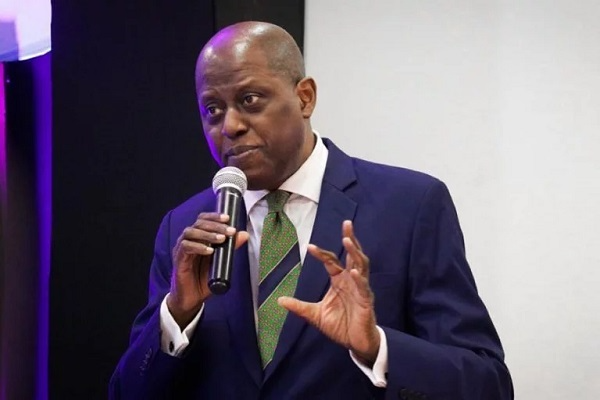The governor of the Central Bank of Nigeria (CBN), Olayemi Cardoso, affirmed that interest rates would remain elevated until the inflation rate decreases.
Cardoso conveyed this stance in a Financial Times report on Monday, highlighting the commitment to implementing orthodox policies to curb inflation.
According to Cardoso, there is a firm intention within the Monetary Policy Committee (MPC) to employ necessary measures to rein in inflation.
He emphasized the CBN’s shift towards orthodox monetary policies, aiming to restore price and monetary stability.
Cardoso noted that the official foreign exchange (FX) market window has been stabilized, attributing this to investors’ growing comfort with the market despite previous tendencies to react to currency fluctuations.
Related News: CBN’s New Cybersecurity Levy: 16 Banking Transactions Given Exemption
Addressing the significance of raising interest rates, Cardoso stressed that while it may act as a disincentive to investment and production, it remains crucial for moderating the foreign exchange market.
He underscored that the approach isn’t without its challenges but emphasized the need for a balanced strategy.
Cardoso acknowledged that inflation surpassed expectations, primarily driven by distortions, especially high food prices, which are largely beyond the CBN’s direct control.
In March, Nigeria’s inflation rate surged to 33.20 percent from 31.70 percent in February.
Subsequently, the CBN’s MPC increased the interest rate by 200 basis points to 24.75 percent.
The FX rate experienced fluctuations, with the naira hitting its lowest level on March 8 but recovering slightly by April 18 before gradually depreciating again.
Meanwhile, food inflation surged to 40.01 percent in March, compared to 24.45 percent recorded in the same period last year, further highlighting the challenges facing Nigeria’s economic landscape.
You can also read: Opay, PalmPay, others Join CBN in Crackdown on Cryptocurrency Activities


